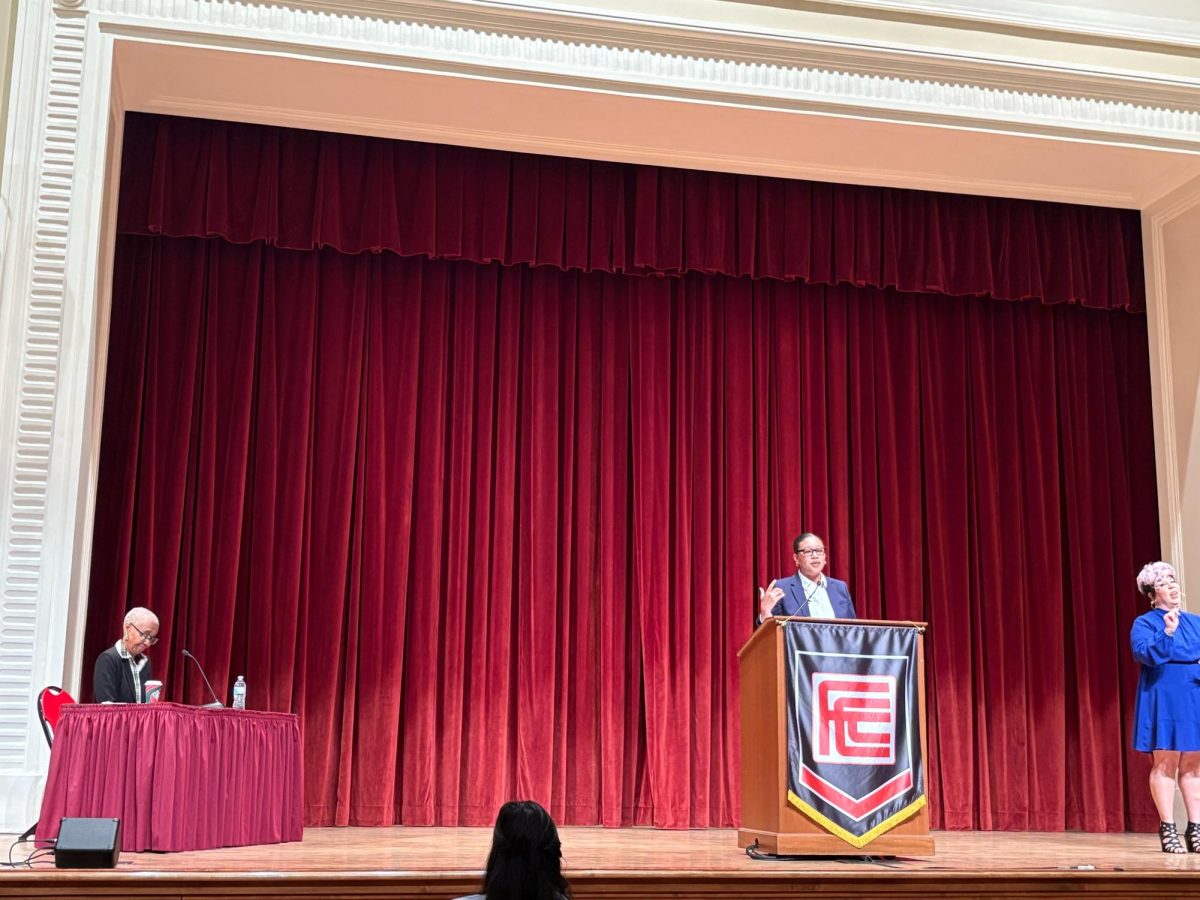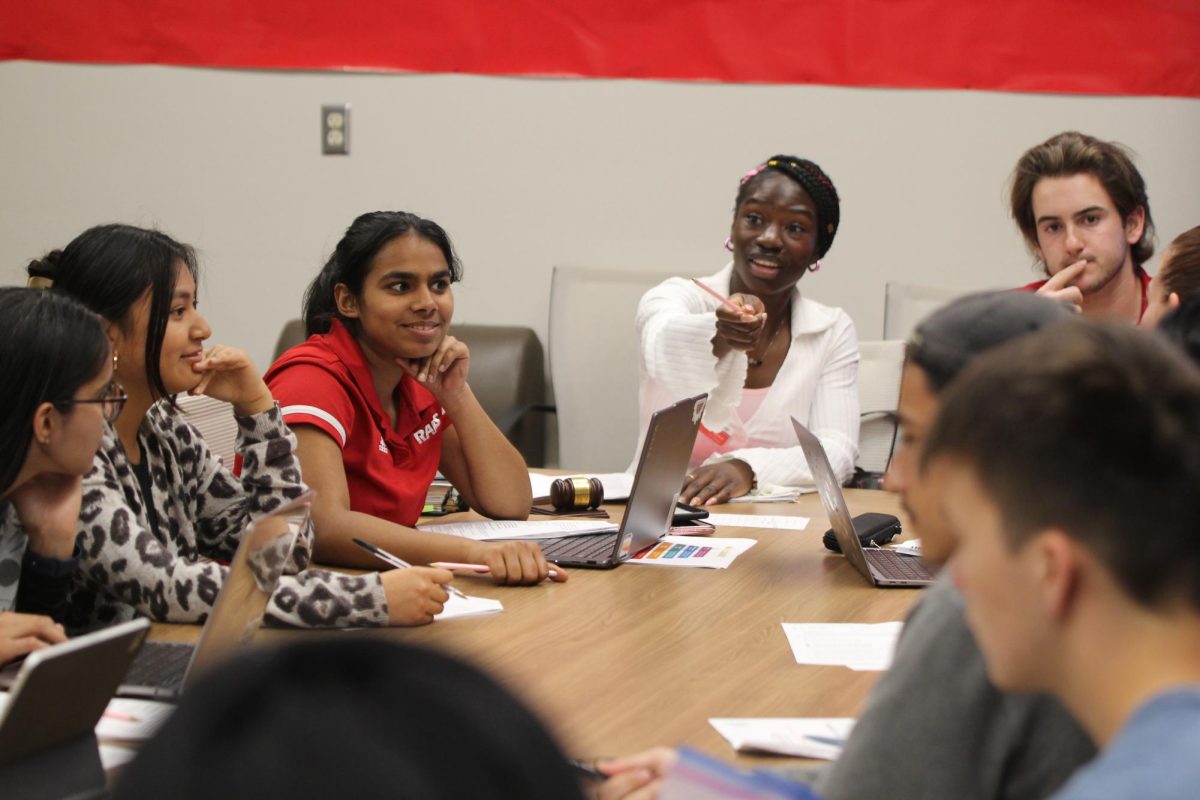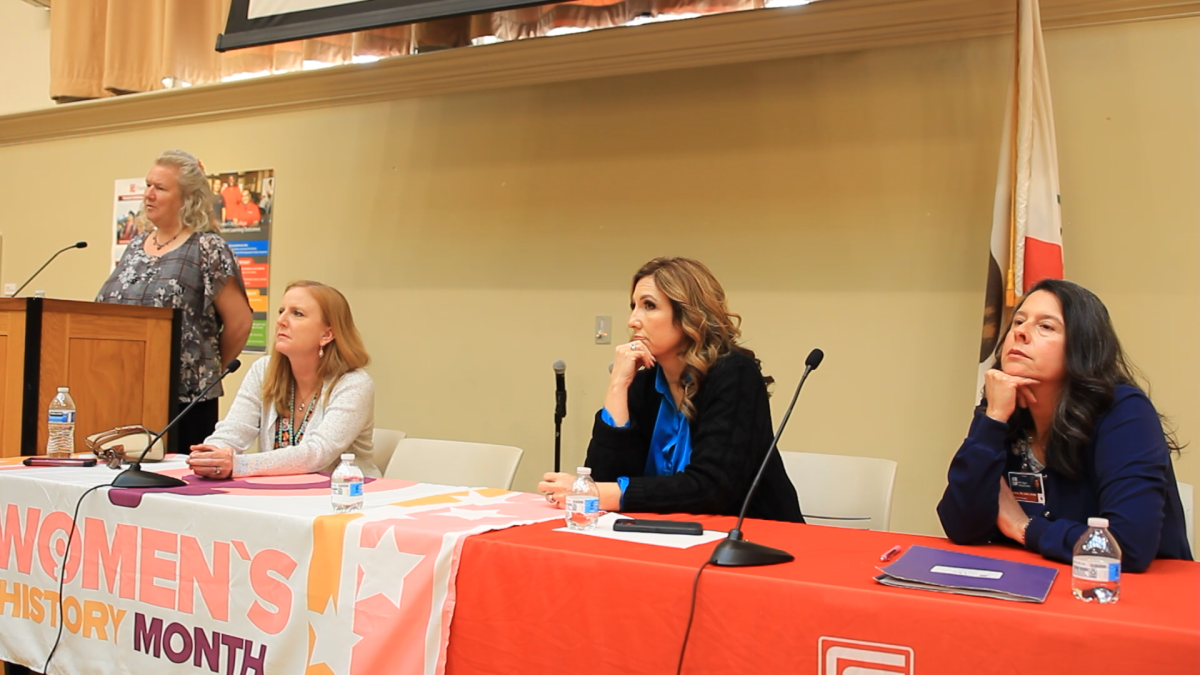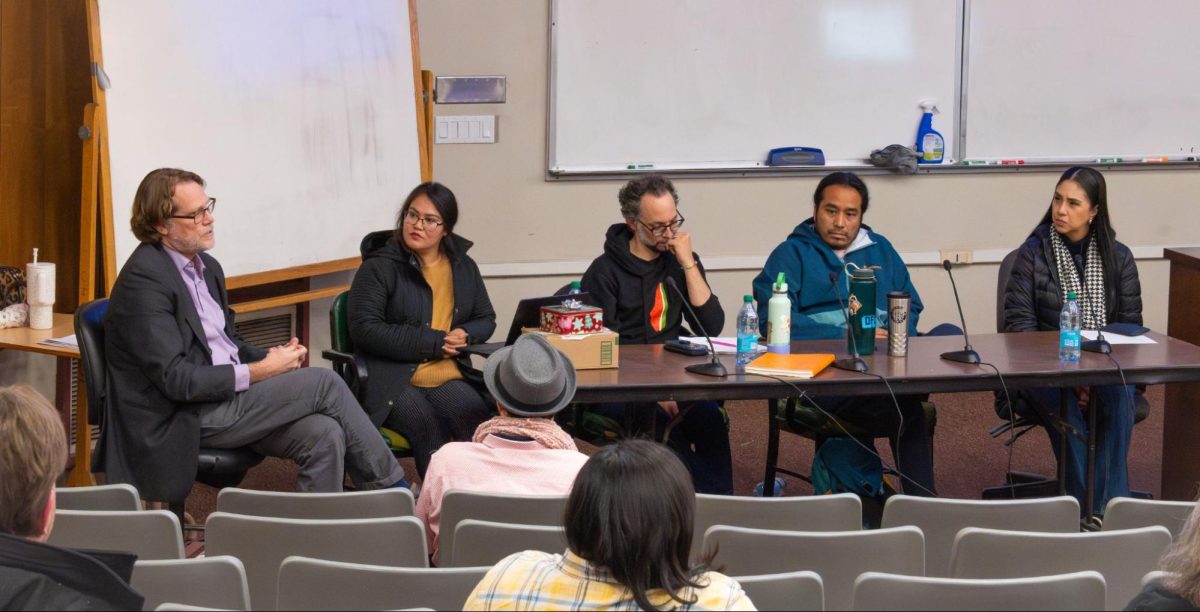Remember when you were in junior high, and setting off the fire alarm was the ultimate prank?
Well, unless you have a real emergency, don’t even think about trying anything with the yellow emergency phones at Fresno City College, said Lt. Richard Gaines of the State Center Community College District Police campus.
“You can be arrested, or at least cited for a false emergency call,” Gaines said. “It is just like calling 911, and hanging up.”
The yellow emergency phone systems work like a two-way radio system. “You push the button and we can hear you, and you can hear us,” Gaines said. “You do not have to hold the button down.” The phones create an open line to the dispatch system at the SCCCD Campus Police headquarters. Gaines reminded students that these are not cell phones and will only connect to a dispatcher here at FCC.
The phones are strategically placed around the campus and have been in existence for over 20 years. “We believe them to be user friendly and at the same time, we are looking into the idea of expanding the speakers that are already in place to broadcast emergency information campus wide, in case of a disaster,” Gaines said.
In addition to the phones, the district has created other systems for dealing with emergencies and disasters, said Gaines. A recently implemented program sends emergency texts and emails to students, faculty and staff in case of an emergency. “There has been a lot of interest in the program,” he said, but participation is strictly voluntary. Students can sign up for the “1st2know” alert program on WebAdvisor, if they desire to be notified via text of any emergency.
Gaines said the emergency procedures are for safety. For example, a few years ago, the FCC campus suffered major power outages. “Our first concern was to identify the neediest of individuals,” Gaines said. At that time, there was no texting system or even an emergency broadcast system, so the officers were forced to go from building to building.
“We had to evacuate the disabled individuals stuck in elevators, and identify any other health issues,” he said. But today, the college has an emergency plan in place. Without revealing too much sensitive information, Gaines explained that the campus police has been collaborating with certain factions on campus, “the nurses and nursing students, the police academy and fire departments, as well as the environmental and health and safety director” to get the word out in the event of an emergency such as a power outage, a train derailment, earthquake or a plane crash.
“Years ago, it was tough to get the word out on emergencies,” he said. “Even though we do have an emergency plan for FCC, we need to break it down into smaller segments.”
Darren Cousineau, SCCCD’s Environmental Health & Safety Director, said the district provides training to all involved in the emergency, and disaster preparedness hierarchy. “We recently went through a ‘mock incident’ training module, and simulated a train accident,” he said. “We have all the major players aligned in an emergency situation. The crisis team consists of a coalition of the Campus Police Dept., Psychological Services, and Campus Health Services, including nurses here on the campus, among others.”
The SCCCD police cover all five campuses in the college district, but they do work around the clock. “We have officers on staff 24 hours a day, seven days a week, including holidays,” Gaines said. “We have cut down the numbers, obviously, but we do have officers working.” It is a large territory to cover, so safety officials are looking into the idea of expanding the camera coverage on the FCC campus. They were installed years ago.
“Our cameras are finally linked into the IP system and as of now we have only three cameras on our campus, the same three we installed three years ago,” Gaines said. The OAB building will be sporting new cameras next spring, albeit on the inside. There will be security cameras looking out onto the courtyard, however.
Lt. Gaines said that although there are ten phones around the FCC campus, students are reminded that if they cannot reach a yellow phone in a real emergency situation, they should dial 911 immediately. The large campus maps that are sprinkled around FCC have been updated with the most frequently called numbers on campus. “it is not surprising that the most frequently called number is the Campus Police,” said Cris Bremer Monahan, Director of Marketing and Communications. “The safety of our students is our main concern.”






